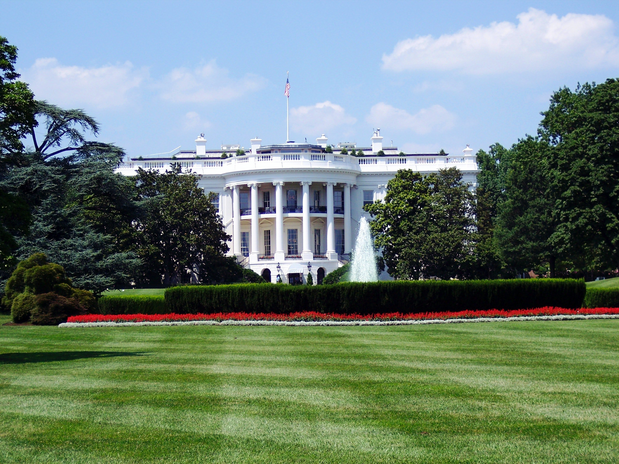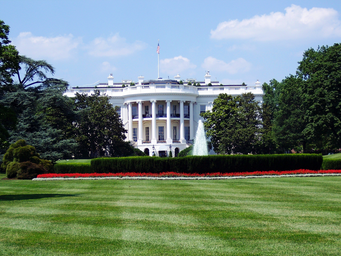The many competing visions for America’s future have been boiled down into just two candidates, Donald Trump and Joe Biden––who arguably do not represent the views of the majority of Americans. The first presidential debate on Tuesday, September 29th showed a bleak and chaotic picture of a country starkly divided.
Debates serve as a rare moment in our political process when millions of people tune in at the same time, watch the same content, and hear directly from the candidates. However, when watching this debate––which was characterized by brash interruptions, witty one-liners, and a lack of focus––the consensus feeling was one of frustration. Donald Trump and Joe Biden have been publicly sparring for more than four years now, but it was difficult to watch the debate and feel proud of either candidate or confident in the future of our country. There is something increasingly uncomfortable about watching two white men in their seventies debate climate change and racial inequality, the effects of which are not and never will be truly felt by either of them.
The debate often devolved into a battle of insults, rather than policy:
Trump said of Biden, “There’s nothing smart about you.”
Biden said, “Will you shut up, man?”
Trump told Biden, “You don’t have it in your blood,” about dealing with the pandemic.
Biden called Trump a “clown” and a “liar.”
While the jabs were amusing to watch, they caused the sincere and important moments to get lost in the chaos. And there were incredibly pivotal moments. Biden unequivocally promised to accept the results of the election and Trump declined to make the same guarantee. One of the biggest takeaways from the night, Trump refused to denounce white supremacy when asked, and instead told the Proud Boys, a far-right group known for violence and ties to white supremacy, to “stand back and stand by.” There was also discussion of the candidates’ policies on climate change, managing the Coronavirus pandemic, and the Supreme Court. Many of the important discussions of the debate were overwhelmed by the rapid exchange of insults and interruptions.
This is especially worrying when you consider the influence that the debates have on certain groups of voters. A recent NBC News/Wall Street Journal Poll found that twenty-nine percent of Americans said that the debates are “extremely important” or “quite important” to helping them decide whom to vote for.
Even beyond the normal classification of winners and losers, the first presidential debate was largely seen as a chaotic failure. So then we must ask––does the fault lie in our two polarizing candidates or must we accept this divisive mayhem as just part of our political process? Or, perhaps, is the fault with the format of our debates? The answer lies somewhere in the midst of all three factors. Our modern debates provide candidates with an incredibly large platform and given our reliance on social media and the short attention span of viewers, there is an incentive to create the “sharpest viral moments” that will drive the narratives on social media and in the news. The Biden campaign capitalized on this and began selling shirts printed with Biden’s zinger, “Will you shut up, man!” before the debate even concluded. At the same time, the political divide and lack of mutual respect between the candidates created an atmosphere ripe for interruptions and personal attacks.
Regardless of the unique circumstances and polarization of this election, the debate format itself may be flawed. The Commission on Presidential Debates, which oversees the general election debates, announced it will be making changes to the format, including “cutting off the microphone of President Trump and Joe Biden if they break the rules.” They hope to ensure a “more orderly discussion of the issues.” Trump’s campaign has signaled its opposition to the rule change, saying “they’re only doing this because their guy got pummeled.” Biden’s campaign, on the other hand, is welcoming these changes in hopes that the new rules will “contain Donald Trump’s behavior.”
The next debate is between the vice-presidential candidates, Mike Pence and Kamala Harris, on October 7th, ahead of the second and third presidential debates on October 15th and 22nd. These debates may look quite different because of the new guidelines and the recent announcement that the President and First Lady tested positive for the Coronavirus.
https://www.cbsnews.com/news/debates-commission-plans-changes-to-presidential-debate-format/



